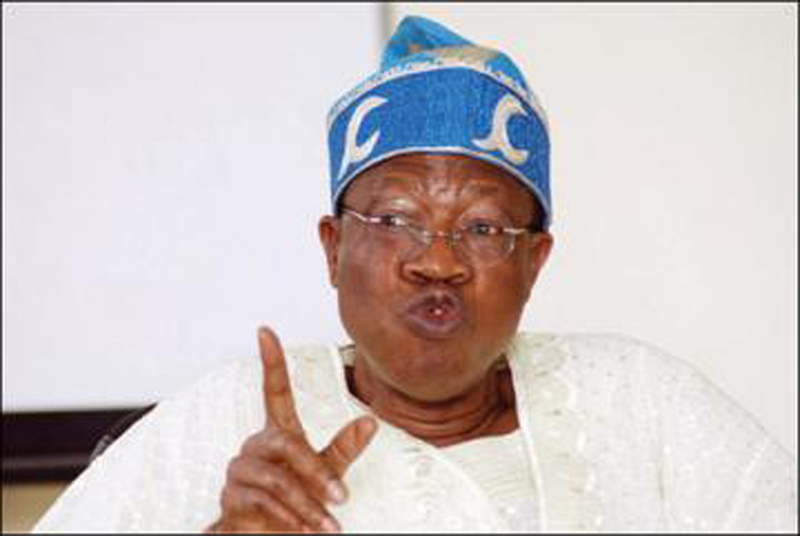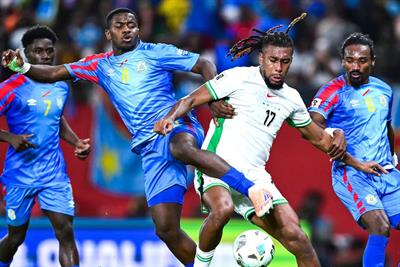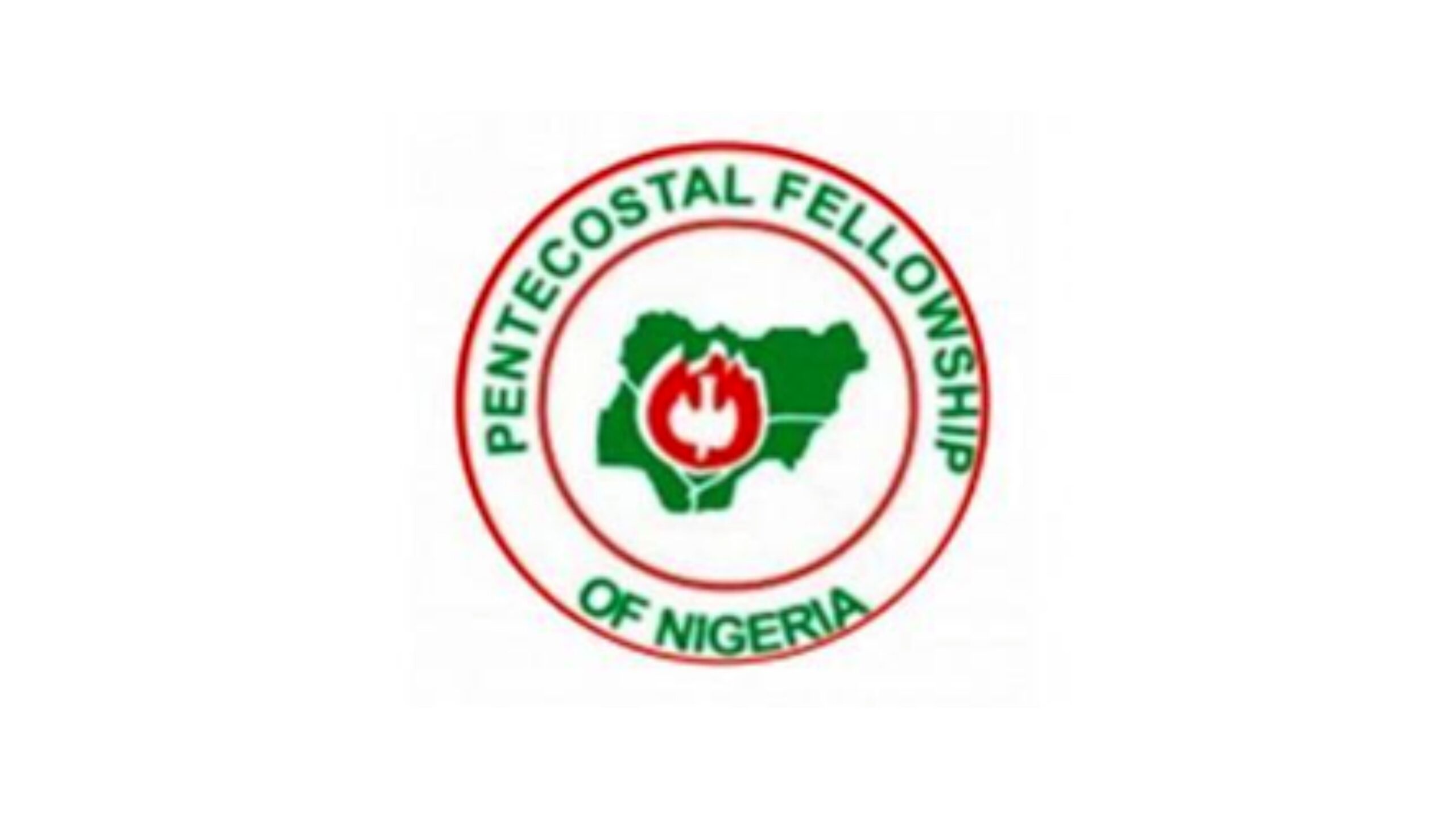Headlines
FG Jittery over UK’s Asylum Plan for IPOB, MASSOB Members, May Summon Envoy

The Federal Government on Tuesday expressed anger over a plan by the United Kingdom to offer asylum to “persecuted” members of the Indigenous People of Biafra and the Movement for the Actualisation of the Sovereign State of Biafra.
The Minister of Information and Culture, Alhaji Lai Mohammed, in an interview with the News Agency of Nigeria in Abuja, said the plan was disrespectful to Nigeria as a nation, adding that it was tantamount to sabotage.
Mohammed stated this as there were indications on Tuesday that the Federal Government might summon the British High Commissioner to Nigeria, Catriona Laing, over the asylum offer.
But socio-political groups including the Middle Belt Forum, the Ohanaeze Ndigbo, Afenifere and the Pan-Niger Delta Forum, supported the asylum offer by the UK and berated the Federal Government over the development.
The UK Visas and Immigration issued new guidelines to its decision makers on how to consider and grant asylum applications of members of Biafran secessionist groups in Nigeria.
In the guidelines published on assets.publishing.service.gov.uk/government, it stated that the asylum would be granted to “persecuted” members of IPOB and MASSOB.
The two groups are calling for the secession of the Igbo in the South-East and many other ethnic nationalities in the South-South from Nigeria.
In the guidelines titled, ‘Country Policy and Information Note Nigeria: Biafran secessionist groups,’ released in March, the UKVI, a division of the Home Office, directed its decision makers to consider if a person “who actively and openly supports IPOB is likely to be at risk of arrest and detention, and ill-treatment which is likely to amount to persecution.’’
It further said the UK must also consider if the Federal Government’s actions were acts of prosecution, not persecution.
“Those fleeing prosecution or punishment for a criminal offence are not normally refugees. Prosecution may, however, amount to persecution if it involves victimisation in its application by the authorities,’’ the 56-page document noted.
An example of persecution, the UKVI said was “if it is the vehicle or excuse for or if only certain groups are prosecuted for a particular offence and the consequences of that discrimination are sufficiently severe. Punishment which is cruel, inhuman or degrading (including punishment which is out of all proportion to the offence committed) may also amount to persecution.”
On the alleged marginalisation of the Igbo, which it said led to the current agitation by IPOB, it said, ‘’Nigeria’s President Muhammadu Buhari has been perceived by some as being dismissive and unsympathetic towards the people of the South-East, particularly with regard to the appointment of senior government officials which appeared to favour his northern constituents.
It disclosed that MASSOB and IPOB had largely advocated peaceful change but on occasions had used rhetoric that might encourage violent resistance, adding that IPOB in particular, through its online platform, Radio Biafra, and online comments of its leader, Kanu, had stoked secessionist aspirations and encouraged resistance to the authorities.
The guidelines noted that though MASSOB was not a banned organisation and continued to conduct public activities, a number of its supporters had been arrested – and some killed during demonstrations.
It stated, ‘’MASSOB, since its formation in the late 1990s, has clashed with the security forces. Numerous members have been killed, wounded and arrested – usually during demonstrations. Over a hundred arrests were made in September 2018, at least 10 in 2019; and, in July 2020, it was reported that members of MASSOB were arrested following clashes with the police.
“IPOB has in recent years become the dominant Biafran group. Since 2015, the security forces have reportedly extra-judicially killed tens and injured hundreds of its supporters and leadership, often using excessive force to control protests.
“The security forces have also arrested hundreds of IPOB supporters at different events, usually when disrupting demonstrations or marches to promote Biafran independence, particularly during 2015 to 2017, as well as during raids on the homes of IPOB leaders. Sources also report clashes with the authorities during 2018 and Amnesty reported that security forces arrested at least 200 and killed 10 supporters at different times during 2019.
On cases for consideration for asylum, the UK agency said, “A risk of persecution will depend on their role, profile and activities for the group, and previous arrests by the state. A person who actively and openly supports IPOB is likely to be at risk of arrest and detention, and ill-treatment which is likely to amount to persecution. Each case will need to be carefully considered on its facts, with the onus on the applicants to demonstrate that they are likely to face a risk of persecution.’’
While acknowledging instances of attacks on security forces by IPOB members, the agency said where members of MASSOB or IPOB had incited or used violence to disrupt public order, the government might have legitimate grounds to arrest and prosecute those people.
It, however, argued that “where the government has arrested and detained persons who, for example, peacefully participate in demonstrations and has then charged them with treason or the person is subjected to periods of detention in degrading or inhuman conditions, such treatment is unlikely to be fair or proportionate, and is likely to amount to persecution.”
A senior official of the Federal Government, who confided in one of our correspondents, stated that the government would demand an explanation from the UK on its decision which Nigeria considered as inappropriate and a veiled support for the outlawed group which had been agitating for the disintegration of the country.
The source stated, “The Ministry of Foreign Affairs will definitely take up the asylum offer to IPOB with the British High Commission. The government may summon the High Commissioner and demand an explanation for their decision which is totally inappropriate and a form of support for the proscribed group.’’
Headlines
Heartbreak As Congo Ends Super Eagles 2026 World Cup Dreams

The Super Eagles’ 2026 World Cup dream suffered a major blow on Sunday as DR Congo advanced to the intercontinental playoff following a dramatic penalty shootout at the Prince Moulay Abdellah Stadium in Rabat.
Nigeria’s hopes of qualifying ended in heartbreaking fashion, marking the second consecutive year the Super Eagles will miss out on the world stage.
The match ended 1–1 after 120 minutes of regulation and extra time, sending the high-stakes encounter to penalties.
Nigeria initially went ahead through Frank Onyeka in the third minute, but DR Congo equalised in the 32nd minute through M. Elia.
The tension continued into the penalty shootout.
Nigeria’s Calvin Bassey and Moses Simon missed early chances, while Nwabali denied DR Congo’s first penalty.
Akor Adams kept the Super Eagles alive, but DR Congo struck back through Sadique and later scored the decisive fourth penalty, leaving Nigeria trailing 4–3 in the shootout.
The victory sets up DR Congo for a chance to secure one of the final World Cup tickets to the expanded 48-team tournament in the United States, Canada, and Mexico.
Nigeria’s defeat marked the second consecutive year the Super Eagles will miss out on the world stage.
Both teams had earned their places in the final after dramatic semi-finals.
Nigeria had booked their place in the final with a dramatic 4–1 extra-time win over Gabon in Thursday’s semi-final at the Moulay El Hassan Stadium.
DR Congo also advanced with a 1–0 victory over Cameroon at the Al Barid Stadium the same evening.
The Leopards now await their intercontinental playoff opponent, keeping alive their hopes of reaching the 2026 World Cup, while the Super Eagles’ campaign comes to an agonising end in Rabat.
Headlines
Just In: PDP Expels Wike, Anyanwu, Fayose, Others

The Peoples Democratic Party (PDP) has expelled Minister of the Federal Capital Territory (FCT) Nyesom Wike, its suspended National Secretary, Samuel Anyanwu, and former Governor of Ekiti State, Ayo Fayose.
Their expulsion was announced on Saturday at the party’s National Convention in Ibadan, Oyo State.
Headlines
Trump Didn’t Lie, There’s Christian Genocide in Nigeria, PFN Insists

The Pentecostal Fellowship of Nigeria (PFN) has insisted that there is Christian genocide ongoing in Nigeria, hence demanding end to the alleged Christian killings.
Speaking on Thursday after an emergency executive meeting of the Fellowship held at its national headquarters in Lagos, PFN President, Bishop Francis Wale Oke, said the body would no longer remain silent while Christians are “targeted, killed, raped, and displaced” across the country.
He said: “There is Christian genocide going on in Nigeria. If we call it by any other name, it will bring Nigeria down. We are crying out to our international friends, beginning with America and Donald Trump. Whatever you can do to help our government put an end to it, come quickly and get it done. When on Christmas Day, Christmas Day was turned a bloody day in Benue State, and hundreds were massacred. And we are to be conducting mass funerals when we are not in open conflict. What do you call that? And this is different from individual cases.
“Let us call a spade a spade. There is Christian genocide ongoing in Nigeria,”Bishop Oke declared.
“Even while we speak, killings are still taking place in Borno, Plateau, and Benue states. When 501 Christians were massacred in Dogon Noma in Plateau, what do we call that? When Christmas Day turned into a bloody day in Benue, with hundreds massacred, what name should we give it?
While noting that the United States President Donald Trump spoke the truth, the PRN President cited the case of Leah Sharibu who was abducted alongside other Chibok girls and has since remained in captivity.
“Like the case of Leah Sharibu. Where is Leah Sharibu? Like the case of Deborah that was lynched and burned alive in Sokoto? What about that? And several of our girls were kidnapped and forced, given out as wives by force without the consent of their parents and their Christian parents. And the Christian parents would not see them for years.And this has been going on. We have been talking and we are not taking it seriously. And it has been going on again and again, until Donald Trump now spoke. And Donald Trump spoke the truth. There is Christian genocide going on in Nigeria.
“Like you will have picked in the news, even since this narrative began, killing was still going on in Borno, in Plateau, in Benue, up until yesterday. What are we saying? When 501 Christians were massacred in Dogonaya in Plateau State, what do we call that? And for no offense other than they are Christians.”
Oke recalled that the Christian community had repeatedly called the attention of the government to the alleged genocide with no decisive action from the authority.
The cleric expressed his backing for President Trump’s intervention, adding that Trump only echoed what Nigerian Christians had been saying for year
“I was part of the team that went to see the immediate past President, Muhammadu Buhari. We spoke very strongly about this and the President listened to us, but he completely ignored the main issue we came for, If we came and spoke with such vehemence, with such passion, and then you pick the peripheral matter and left this matter alone, I knew that day that his government was complicit in what was going on,” he added.
Oke alleged that the killings across parts of Nigeria were systematic and targeted on Christians, lamenting that the killings had continued unchecked despite repeated appeals from the Church.
“The evidence is all over the place. There is nothing anybody can say that can whitewash it. It is evil, it is blood shedding, it is mass murder and it is genocide. The time to stop it is now. That is what the church in Nigeria is saying with one voice.
“Christians in this nation must be free to practice their faith in any part of Nigeria as bona fide citizens of Nigeria.
“These armed bandits, Fulani herdsmen, Boko Haram, ISWAP, all of them using Islam as a cover. We have been living in peace with our Muslim brothers for a long, until this violent Islamic sect came up with an intent to make sure they impose Sharia on all Nigerians,” Oke said.
Bishop Oke called on President Bola Tinubu to decisively overhaul the nation’s security architecture, and ensure justice for victims of religious violence. He questioned why those responsible for notorious attacks—such as the killing of Deborah Samuel in Sokoto and the abduction of Leah Sharibu and the Chibok schoolgirls—remain unpunished.
“The government should prove by action, not words, that it is not complicit,” he said. “When hundreds are buried in mass graves and the whole world sees it, who can deny it? Why should we play politics with the blood of Nigerians?”
The PFN urged President Tinubu’s administration to rebuild trust by ensuring that the security architecture of the country is not infiltrated by those sympathetic to extremist ideologies.
Oke further condemned the government’s rehabilitation of so-called “repentant terrorists,” describing the move as a grave security.
He assured Christians that the PFN would continue to speak out until the killings stop. “We are not going to keep quiet. We will keep raising our voices until justice is done and every Nigerian, regardless of faith, can live in peace. The truth may be suppressed for a time, but it cannot be buried forever,” he said.
The meeting, which drew PFN leaders from across the country, reaffirmed the body’s commitment to national unity, peace, and the protection of fundamental human rights, while urging the media to “side with the oppressed” and report the truth without fear or bias.






